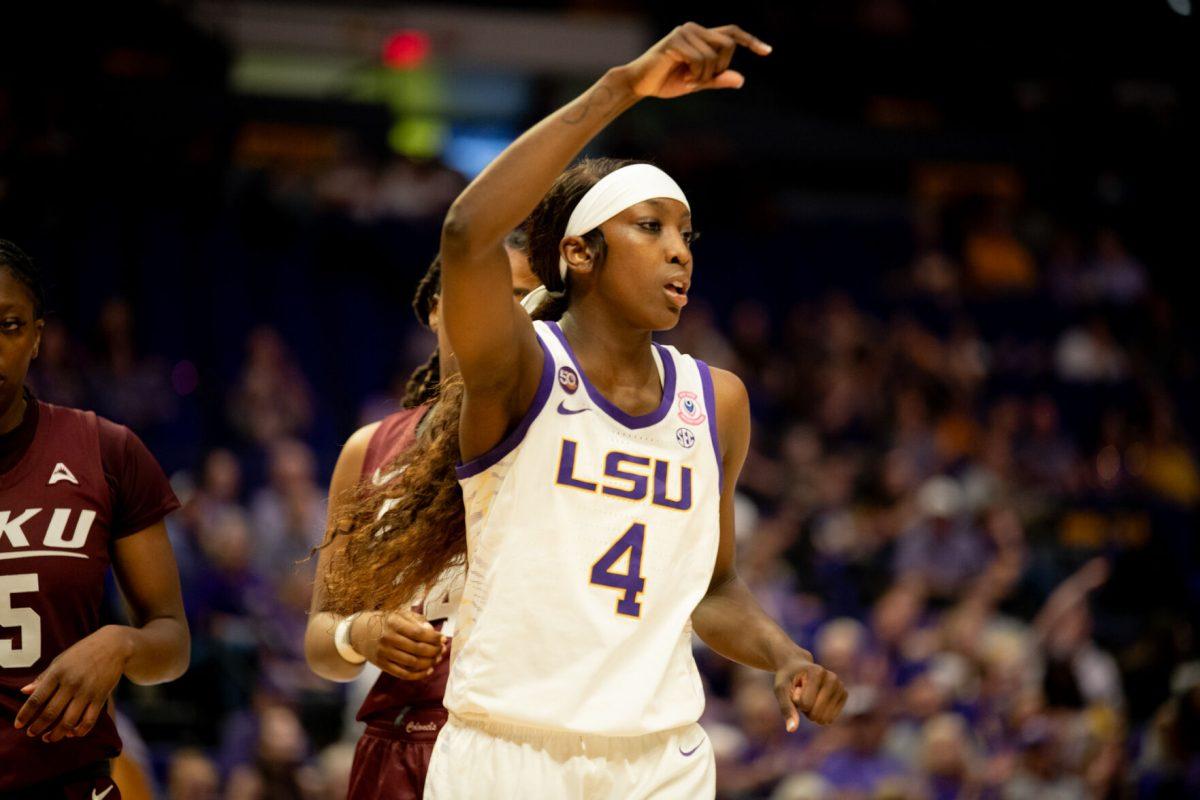When No. 19 LSU takes the field against Tulane this weekend, the teams will have more in common than a rich history and mutual hatred.Both the Tigers and the Green Wave will start quarterbacks from Texas — LSU freshman Jarrett Lee and Tulane’s either Kevin Moore or Joe Kemp. To some, that may seem like a coincidence, but recent history shows a trend of success for Lone Star state signal callers.On the surface, Utah quarterback Brian Johnson and Florida State quarterback Christian Ponder appear to be on the opposite ends of the college football spectrum.Johnson is a fifth-year senior on a non-BCS conference school, trying to break its way into a BCS bowl by going undefeated.Ponder is just a sophomore trying to lead the Seminoles back to the BCS by winning the Atlantic Coast Conference.But like Lee, Kemp and Moore; both Johnson and Ponder share one thing — Texas”That’s something we’re all very proud of,” Johnson said. “In Texas, they teach you the game of football. You don’t just learn how to play, but you become a student of the game.”Eight teams in the BCS top 25 have starting quarterbacks that hail from the Lone Star state, including Heisman candidates Texas’ Colt McCoy, Missouri’s Chase Daniel, Texas Tech’s Graham Harrell and Georgia’s Matthew Stafford.Johnson said the success of Texas signal callers stems from the depth of their playbooks at the high school level and in-state competition among all the Texas quarterbacks trying to make it to the next level.”I didn’t play against Graham or Chase,” Johnson said. “But we were in the same recruiting class. And being a competitor, it made us want to stand out for recruiting. But I think we all ended up in the right spots, and we’re making the most of our opportunities.” Another reason for the success may be the structure of Texas high school football.In addition to the regular season in the fall, Texas allows schools to compete in 7-on-7 competition in the spring and summer, which allows quarterbacks to operate in a spread-like offense because running isn’t primarily used in 7-on-7 drills.While tinkering with the spread offense in summer drills, D.W. Rutledge, the executive director of Texas High School coaches, said many coaches switch to the offense during their regular season.”The 7-on-7 encourages coaches to go to that type offense,” Rutledge told ESPN.com.Ponder said a 12-month football season helps develop players better than places who just have one football season.”Football season is pretty much year round,” he said. “Those 7-on-7 games helped me to read defenses, and as a quarterback, I was allowed to manage the whole thing and call my own plays.”Ponder also said because of the longevity of the season, quarterbacks and receivers are able to develop more chemistry and thus enable their coaches to implement more difficult offenses.”My junior year, we were able to switch the spread offense, and that enabled me to run the plays that I am running now in college,” he said. “It was a hard transition, but it was something everyone wanted to do.” LSU junior receiver Brandon LaFell said his team also implemented the spread offense in his junior season at Lamar High School.The Houston native said that decision helped showcase his playmaking ability to universities.”We put it in and once we perfected it, we were able to make some plays,” he said. “A lot of guys now are running the same systems in college that they ran in high school.”LSU has also had success with recruiting Texas quarterbacks in years past.BCS national championship quarterback Matt Flynn is from Robert E. Lee High School in Tyler, Texas.Current quarterback Lee also comes from Texas by way of Brenham High School.LaFell’s Lamar High School faced Brenham a year after LaFell graduated and said he knew, from watching Lee, he would be a collegiate quarterback.”We ran into Lee a year after I left and I think we beat him on a hook and lateral play,” he said. “But from what I was told, we all knew he would be a fabulous player.”LaFell said in addition to coaches emphasizing the passing game, Texas high school players have a different attitude toward football.”We always brag out here about what state has the best football,” he said. “But us Texas guys are always talking about how we play smashmouth football. We tell everyone that if you put our all-star team together that we’d kill everyone else. All you have to do is look at the number of guys out there from Texas at different schools that are producing. That speaks for itself.”LSU figures to have another Lone Star quarterback in the future, as the Tigers have a verbal commitment from ESPN.com’s No.1 overall prospect in the 2009 class, Houston’s Russell Shepard.Texas coach Mack Brown is one coach who missed out on Shepard.But Brown said the depth and quality of quarterbacks inside his state each year makes losing a player of Shepard’s caliber less of a blow than it would be in another state.”There are 10 quarterbacks a year that can all play,” Brown told ESPN. “It’s a real good thing . . . It’s a real problem when you try to pick the one out of the 10 that will separate from the rest, and then the other nine are mad at you and their coaches are mad at you.”—-Contact Casey Gisclair at cgisclair@lsureveille.com
Texas quarterbacks excelling on national level
October 31, 2008
Redshirt freshman and Texas native Jarrett Lee throws a pass Saturday against Georgia. Eight teams in the BCS top 25 have starting quarterbacks from Texas.
More to Discover








